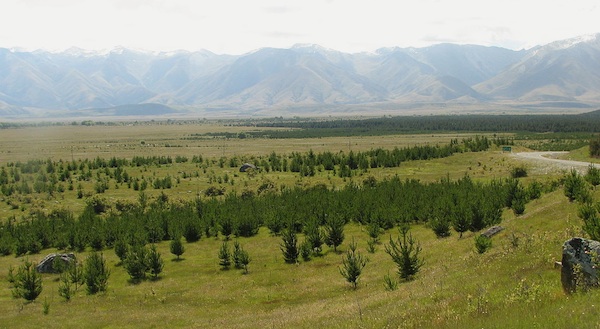Because of Covid-19, the NZIAHS cancelled the Political Forum at Lincoln University early this month. Key politicians had been invited to the forum to inform our members of their party policies relevant to our science and to be questioned.
Instead, we put three questions to the politicians for written replies for publication before the general election next month.
Here’s the third of the three questions and the responses we received.
- Do you think the Billion Trees initiative is appropriate in the context of valuable class 5 and 6 land being planted in exotic plantations and the on-going issue with accumulation of forestry slash on the beaches of the East Coast?
Damien O’Connor, Labour Party
While we will continue to plant the right tree in the right place to meet our climate change challenges, our food producing soil will be our number one priority.
Within the first six months of Government (subject to a second term) we will revise the National Environment Standards for Plantation Forestry to enable councils to once again determine what classes of land can be used for plantation and carbon forests. Resource consent would be required for plantation or carbon forests on land use capability classes 1-5 often known as elite soils, above a threshold of 50 hectares per farm to allow farmers flexibility in creating small plantations to support environmental goals.
90% of forestry planning for ETS purposes happens on less productive soils in classes 6-8, we want to ensure all planting happens away from our most valuable soils 1-5. Communities know best about their local sectors and should be able to determine whether forestry should be happening on their productive pastoral land.
David Bennett – National Party
Forestry is a valuable industry and should be encouraged. However, the Billion Trees programme is a political promise rather than a genuine attempt to reduce emissions responsibly. It is not operating on a principle of right tree, right place and we are seeing perverse outcomes as a result.
The distortion in the Overseas Investment Office’s rules for land purchases and the role of planting to meet carbon offset targets has led to some productive sheep and beef farms being purchased for forestry.
Rural communities are concerned about some of these rules and we believe they need to be re-examined. It is concerning to see prime farmland being converted at an accelerated rate and once this conversion has occurred we are unlikely to see this land return to farming.
The Government has indicated that they may require a consent process to plant on certain land but this would exclude class 5 land and above. This RMA process is therefore ineffective and merely a political stunt to try and appease the rural communities.
The reality is that most of these conversions are happening on class 5 and above land, so the exemption in the policy effectively renders this RMA consent requirement redundant.
Eugenie Sage – Green Party
Forests are vital to Aotearoa New Zealand. They store carbon, and expanding the area of land in forest can help Aotearoa New Zealand meet its international climate commitments in the short term.
While the Green Party supports the Government’s One Billion Trees programme for its climate and economic benefits, we believe that all rural production land must be managed in ways that are environmentally and ecologically sustainable and preferably regenerative. Planting efforts must be diversified into different species including native plantation timbers.
In Government the Green Party has achieved a commitment to review the National Environmental Standard for Plantation Forestry to ensure the standards better address issues such as species diversity; protection of productive, food producing land; and wilding conifer spread. The easier test under the Overseas Investment Act when overseas investors seek to buy farmland for forestry needs to change.
Poor management of forest planting and harvesting which results in large volumes of forestry slash, erosion, topsoil loss highlight the need for change and much improved land and forest management. The plantation forestry sector must move away from pine monocultures, to include more diverse species including more planted native forests.
With the Green Party in government we are funding through the $1.3 billion Jobs for Nature programme the re-establishment and maintenance of wetlands, pest and weed control, riparian planting and wilding conifer control.
The Green Party will provide incentives to encourage regenerative agriculture and match land use to land use capability (eg to encourage erosion prone hill country to be planted in suitable indigenous forest species for permanent carbon sinks, soil conservation, and biodiversity enhancement).
The Greens support land use change and a diverse mosaic of land uses so that food and fibre production operate within environmental boundaries.












